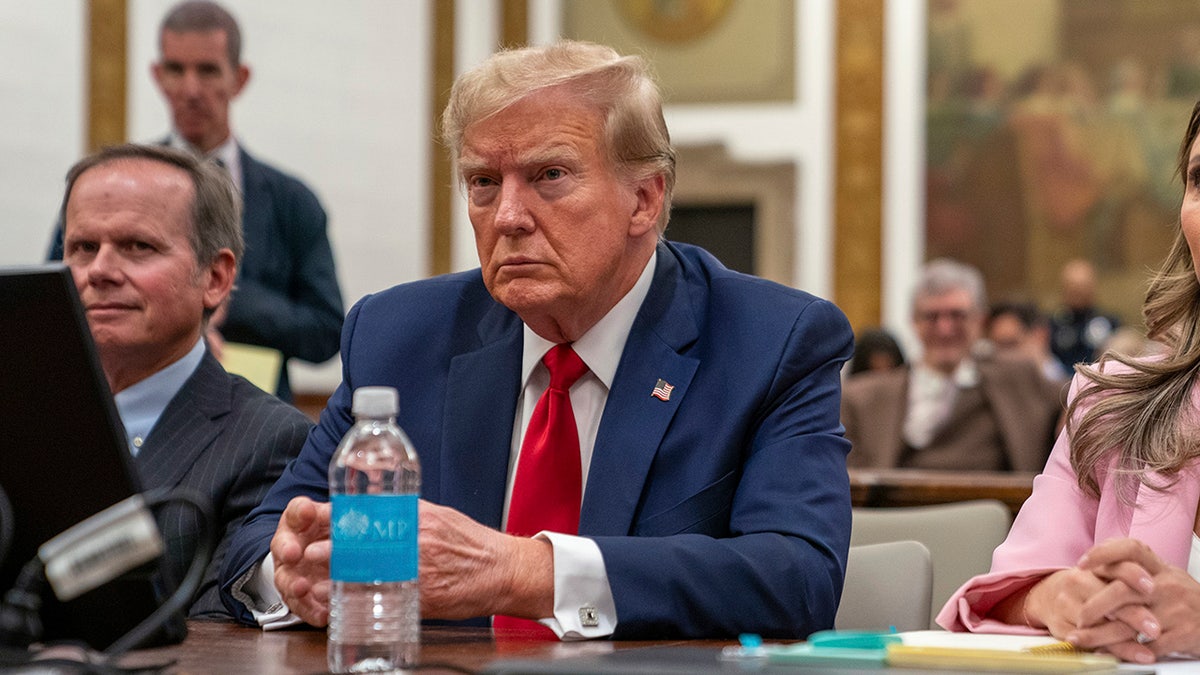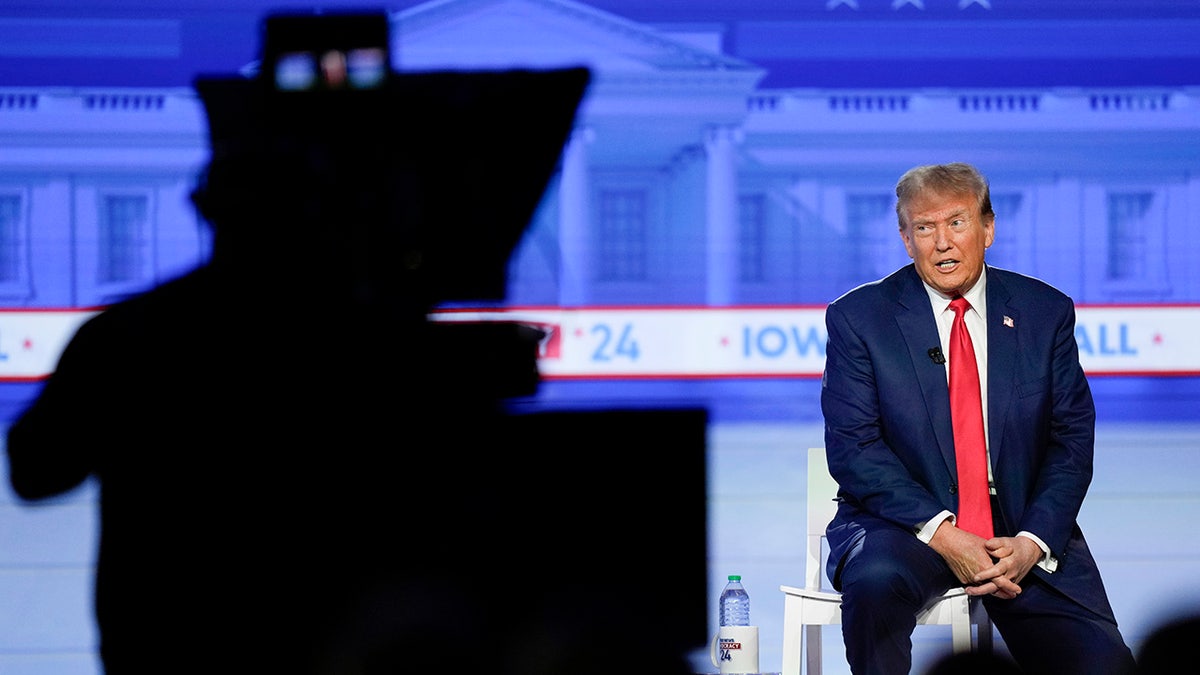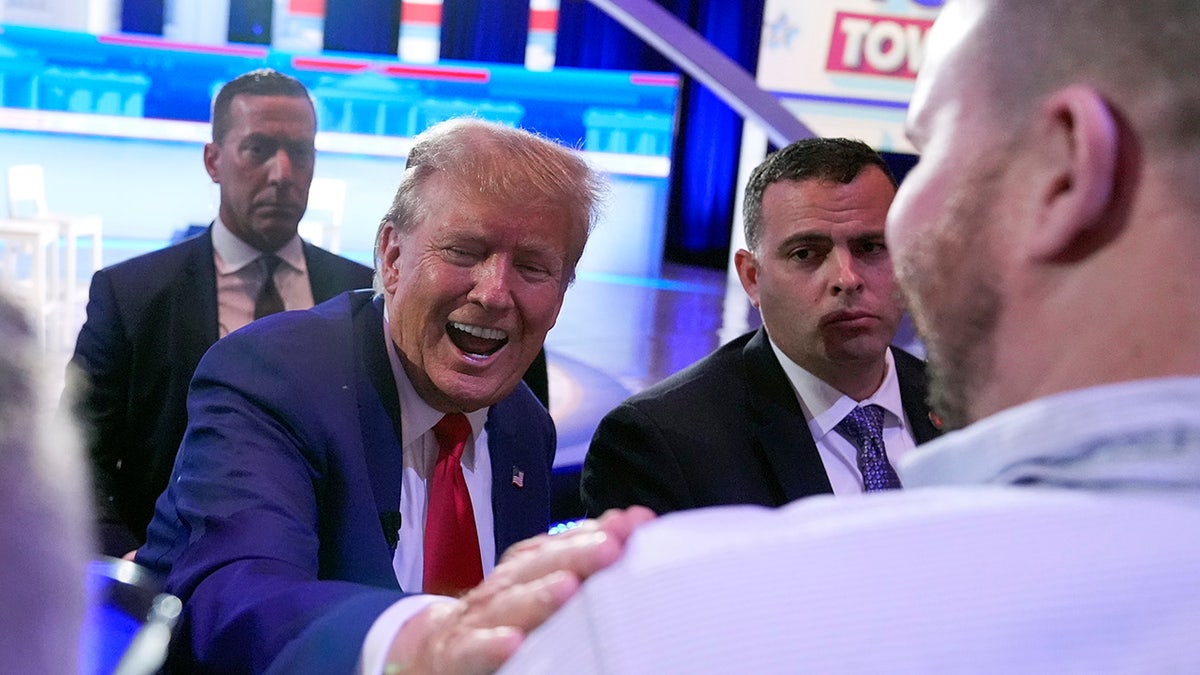John Anthony Castro, a long-shot Republican presidential candidate vying to have former President Trump removed from the ballot over the 14th Amendment insurrection clause, was arrested on federal tax fraud charges Tuesday – a day after a federal judge in Nevada threw out one of his lawsuits aiming to bar Trump from running.
Castro, 40, of Mansfield, Texas, was indicted on 33 counts of aiding and assisting in the preparation and presentation of a false and fraudulent return, U.S. Attorney for the Northern District of Texas Leigha Simonton announced on Wednesday. Court records show the indictment was filed under seal on Jan. 3.
Prosecutors say Castro carried out a pattern of falsely creating and submitting tax returns on behalf of dozens of unsuspecting taxpayers through his tax prep business, resulting in hundreds of thousands of improperly paid claims. He was arrested Tuesday and released later that day after making his initial appearance before U.S. Magistrate Judge Hal R. Ray, Jr.
“Mr. Castro’s alleged crimes are stunning in their brazenness,” Simonton, who was nominated by President Biden, said in a statement. “The Department of Justice will continue to hold people accountable who steal from the federal government’s – and the American public’s – pockets.”
NEVADA JUDGE REJECTS TRUMP BALLOT ELIGIBILITY CHALLENGE, SAYS GOP OPPONENT ‘IMPROPERLY MANUFACTURED’ STANDING

Former Trump attends the Trump Organization civil fraud trial in New York State Supreme Court, Dec. 7, 2023, in New York. Trump is returning to court Thursday for closing arguments in the trial. (David Dee Delgado/Pool Photo via AP, File)
“This is precisely the type of conduct IRS Criminal Investigation and our law enforcement partners are committed to deterring,” Tammy Tomlins, special agent in charge of the Newark field office added. “Today’s indictment sends a clear message, you will be held accountable if you abuse our tax system for your personal financial gain.”
Castro told the New York Times in a phone interview he believes the indictment was politically motivated and came as an attempt to disrupt his lawsuits challenging Trump’s eligibility.
“They sat on it for three years to see if I would stop being a problem, politically, and go away, and I didn’t,” Castro told the Times.
Castro also reportedly told The Hill his firm settled the tax return matter with the IRS in 2021 and alleged that certain clients misinterpreted tax law.
The indictment was announced after U.S. District Court Judge Gloria M. Navarro, of Nevada, issued an order Monday ruling that Castro lacked standing and dismissed his lawsuit that had ultimately asked if the U.S. Constitution’s 14th Amendment bars Trump from holding office over his alleged incitement of the 2021 riot at the U.S. Capitol.
Navarro, an appointee of former President Obama, had ruled that Castro failed to demonstrate he “suffered a concrete, particularized, and actual or imminent injury” due to Trump’s conduct, and therefore the court lacked jurisdiction on such a “politically charged question of significant interest to the American public.”
The judge also noted how, by his own admission, Castro declared as a candidate and paid the filing fee to show the impermissibility of Trump’s presidency. Five other courts had already rejected Castro’s political competitor standing argument, and Navarro highlighted that Trump and Castro are not even competing on the same ballot in Nevada.

Former President Trump speaks during a Fox News Channel town hall in Des Moines, Iowa, Wednesday, Jan. 10, 2024. (AP Photo/Carolyn Kaster)
SUPREME COURT TO DECIDE IF TRUMP BANNED FROM COLORADO BALLOT IN HISTORIC CASE
According to the indictment, Castro owned and operated Castro & Company LLC., a virtual tax preparation business with locations in Orlando, Florida, Mansfield, Texas, and Washington, D.C. Starting in 2016, prosecutors allege, Castro devised a scheme to falsely create and submit false tax returns on behalf of unsuspecting taxpayers. Taxpayers would seek out Castro’s assistance in filing personal tax returns and Castro would promise a significantly higher refund than taxpayers could receive from other preparers and on many occasions offered to split the additional refund with taxpayers, the indictment says. In order to achieve these larger refunds, Castro allegedly generated false deductions without the taxpayer’s knowledge.
In 2018, an undercover agent, posing as a taxpayer, contacted Castro & Company for assistance, according to the indictment. Castro allegedly refused to meet in person unless a $5,000 retainer was paid but offered to assist the undercover agent virtually. During a recorded telephone conversation, prosecutors allege Castro stated he could project the amount of the tax refund the undercover agent would likely receive from another firm and then compare that figure with the refund that Castro would obtain.
According to the indictment, an employee of Castro’s interviewed the agent over the telephone regarding deductions.

Former President Trump greets members of the audience after a Fox News Channel town hall in Des Moines, Iowa, Wednesday, Jan. 10, 2024. (AP Photo/Carolyn Kaster)
The employee is said to have stated that Castro would make any decisions regarding what items would be included on the tax filing. The employee did not identify any deductions that would apply to the agent and in the course of the interview, the undercover agent denied any facts that would support deductions, prosecutors say.
On March 14, 2018, Castro filed the agent’s tax return claiming $29,339 in fraudulent deductions. The IRS issued a refund of $6,007, Castro received $2,999 for his services and the agent received the remaining amount of $3,008. As Castro told the taxpayer, he would have received only a $300 deduction had he used another tax prepare, the indictment notes.
If convicted on all counts, he faces up to 99 years in federal prison – three years per count. The Internal Revenue Service, Criminal Investigation conducted the investigation.
CLICK TO GET THE FOX NEWS APP
Though Castro’s legal efforts to ban Trump from the ballot have so far been unsuccessful, dozens of other lawsuits are challenging Trump’s eligibility and the Colorado Supreme Court cited the 14th Amendment in removing Trump from the ballot in their state. Maine’s Democratic secretary of state also banned Trump from the ballot, citing the insurrection clause.
The U.S. Supreme Court agreed to take up Trump’s challenge to the Colorado ruling and is set to hear arguments in February.
